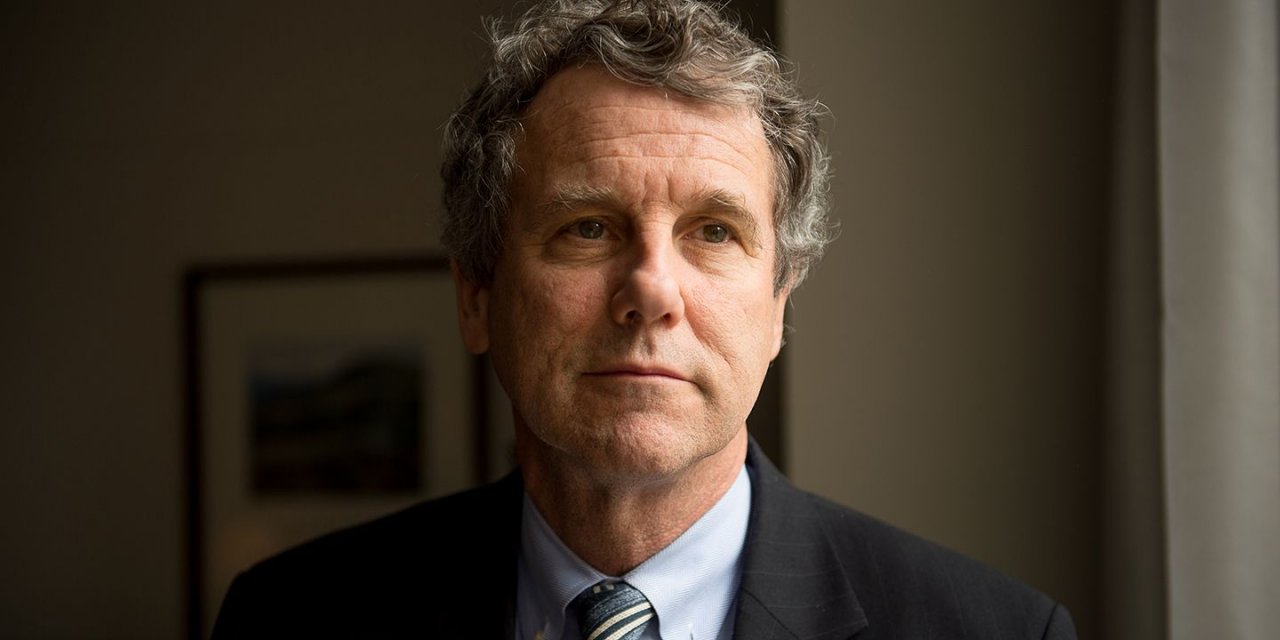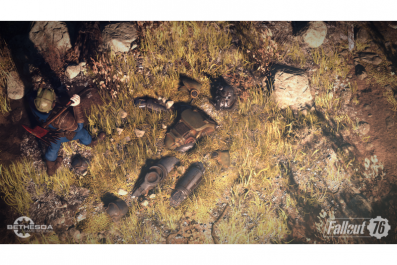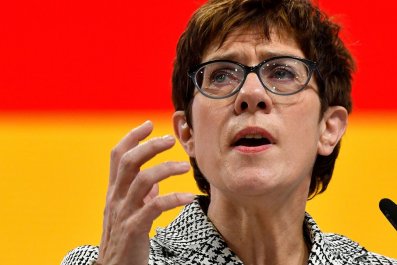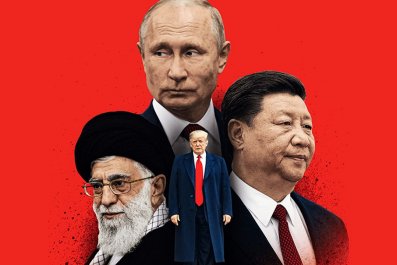Sherrod Brown is having a moment.
The Democratic senator and progressive stalwart from Ohio easily won a third term in November as Republicans swept the state's constitutional offices and maintained their edge in House seats. His victory in an increasingly red state stands as proof, he says, that "progressives can win, and win decisively, in the heartland."
Democrats hope so. After losing Ohio—and white working-class voters—to Donald Trump two years ago, some party strategists and political pundits now see Brown as a potential presidential contender and his successful Senate campaigns as the blueprint for 2020.
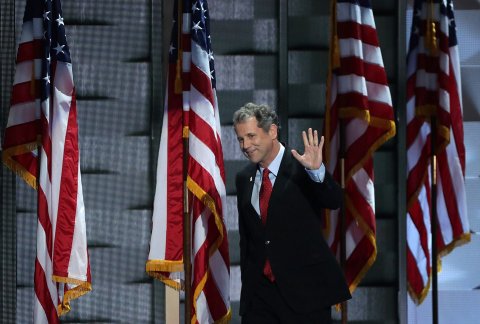
A lifelong champion of the pro-labor left who started out in Ohio's legislature in the 1970s, Brown is a champion of workers and a proponent of stricter regulations on Wall Street. But, like Trump, he is critical of trade deals like NAFTA and supports some tariffs.
He campaigned in Ohio on what he terms the "dignity of work," a political philosophy and a wide-ranging set of pro-labor policies. He advertises that he wears suits made within 10 miles of his house in Cleveland and drives an American-made Jeep Cherokee. On his lapel, he wears a pin shaped like a yellow canary, the bird that coal miners once carried into the pits to detect dangerous gases in the days before government safety regulations.
Brown was elected to the Senate in 2006, the first Democrat Ohioans sent to the upper chamber since astronaut John Glenn retired in 1998. In an interview in his Senate office (the same one occupied by Barack Obama when he was a senator), Brown did nothing to dampen speculation about a 2020 run.
Now that you've had two years to reflect on it, why did Hillary Clinton lose Ohio?
Hundreds of thousands of Ohioans think their children are not going to have a better life than they have. Trump looked like change. A number of people are regretting that change. The White House looks like a retreat for Wall Street executives and has not been on the side of these workers who thought their lives would be better because of this president. People are increasingly realizing they're not.
What's the mood of the Ohio electorate today?
Voters in Ohio are seeing this president that promised change giving more tax cuts to rich people. I mean, there is a provision in the Trump tax law that says if you shut down production in Youngstown, for example, and move to Mexico, you get 50 percent off your taxes. A 50 percent–off coupon. I talked to the president about repealing that. He didn't know it was in the tax law. He then said he would be for repealing it. We are hoping to work with him to get him to work on Republicans here, because Democrats will vote to repeal it.
But can you actually work with Trump?
We are trying to work together on NAFTA renegotiation, on tariffs and on trade generally. We haven't seen any of the results I hope for yet, but I will continue.
The United States, Mexico and Canada signed a replacement for NAFTA, dubbed USMCA. But you want some changes before it is ratified. What is the ideal balance between labor, globalization and profits?
Companies obviously have to make a profit, and globalism is clearly reality, but for me all these trade agreements come down to: Does this mean more jobs here, or does it mean more outsourcing? And so far, the USMCA means more outsourcing and more job loss. The same day GM announced 15,000 layoffs in Lordstown, Ohio, they announced they were going to build the Chevy Blazer in Mexico. USMCA does nothing to fix that. We need stronger labor law enforcement—Mexico hasn't yet passed the labor law it promised. The most important thing is that you can deny entry of products made by U.S. companies in Mexico if they haven't followed through on enforcement of labor standards. That is mostly not in the agreement now.
You support some tariffs.
China has half the world's capacity in steelmaking and aluminum smelting and many other things. They are putting workers out of work in other countries so their workers can work. I understand that it's their national interest. Tariffs are a temporary tool; they are not a long-term policy.
GM said the steel tariff cost it a billion dollars after it announced the Lordstown closing.
Keep in mind that since 2015, GM has purchased $10 million in stock buybacks. They will talk about a billion dollars in tariff costs, but they are enriching their executives, who are already very well paid. Executives and investors benefit in a big way. And that will only get worse—or better, if you are a GM executive—once the tax cuts are fully implemented. The executives took this [tax bill] money, but they can't invest in Lordstown to retool their plant?
Are you concerned about the issues dividing progressives and more establishment Democrats?
That's an assumption I don't agree with. I think we have several presidential candidates that talk about things partly to differentiate themselves; they want to eliminate ICE [Immigration and Customs Enforcement] or have free college for everybody or certain kinds of health care programs. I don't think that makes us divided. I think Democrats are overwhelmingly for expanding the ability of middle-class and working-class kids to go to college without student loans. Almost every Democrat wants to see Medicare at 55, and [most] want to reform ICE. I don't think the differences are so great or that the party is divided. It's just a cacophony of voices: When 25 people have been mentioned for president, you're going to have 25 identities and 25 voices.
Should ICE be abolished?
No, of course not. It should be reformed dramatically. You start with securing the border, but you don't do it by ripping children from their families.
You have said the people in Ohio feel the country looks down on them. How can Democrats address that?
The terms flyover country and Rust Belt diminish our work. Everyone forgets that the industrial Midwest pretty much saved this country during World War II by building the machine that we needed to defeat the Nazis and the Japanese. So I take it a little personally if people look down on us.
What are some of the lessons from your recent election that could apply to other Democrats?
Love your country and fight for the people that make it work. If you start with that, then you focus on better wages, overtime pay when they earn it, pensions, health care. Then, when we're out of session, you go and talk to workers about their lives and where they're going and how government should be on their side and often isn't.
2020. What are you thinking?
If you do this for a living, people come up to you and ask if you'll run for president. It happens to everybody, as long as you can put a sentence together and not drool. I never really thought about it seriously until this election. My wife, Connie, and I were overwhelmed by the number of people across the country that said, "You ought to think about doing this because your career and your message works not just in the industrial Midwest but around the country."
It's a family decision, and I want everybody on board. I'm not there personally yet. My wife is both as excited and reluctant as I am, and we are thinking, What does this mean to our grandchildren?
Trump famously called Jeb Bush "low energy" and Hillary Clinton "crooked." Can you picture yourself on a debate stage with that kind of bully?
Bullies are cowards. Start with that.



